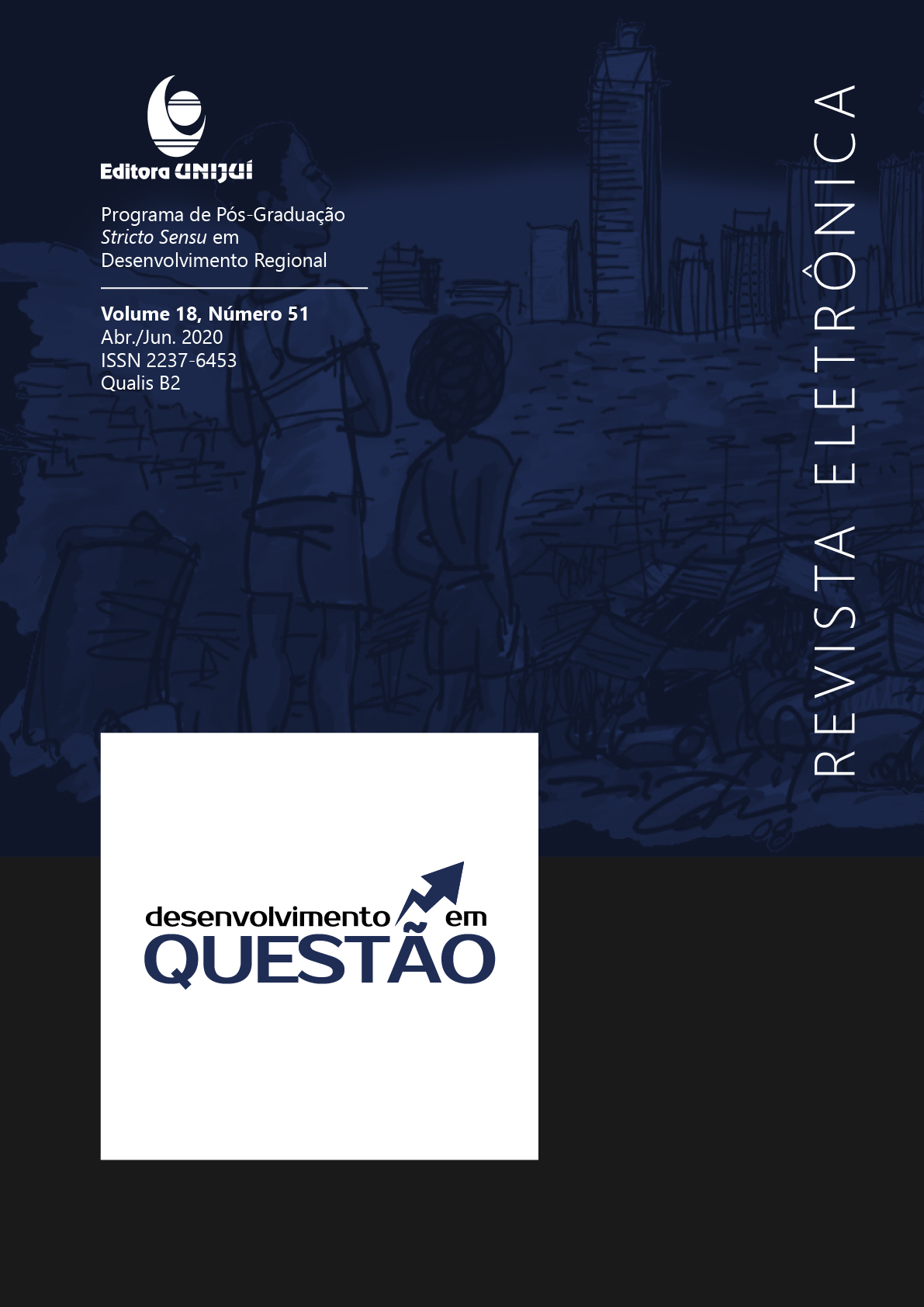Economia Solidária: estrutura de atuação e conhecimento da Cooperativa de Recicladores “Araras Limpa” de Araras/SP
DOI:
https://doi.org/10.21527/2237-6453.2020.51.355-368Palavras-chave:
Cooperação, Coleta seletiva, Resíduos sólidosResumo
Nos últimos anos o crescimento expressivo da população vem gerando questões sobre sua organização. Uma das principais consequências desse crescimento demográfico acelerado, além das ocupações irregulares é o aumento da geração de resíduos sólidos urbanos. Visando o controle de tal consequência, a economia solidária por meio da junção de fatores socioculturais e econômicos, busca o desenvolvimento solidário dos indivíduos envolvidos com base nas relações de confiança, representada neste artigo pela cooperativa de reciclagem. Para tanto, o presente artigo buscou analisar a estrutura de gestão da Cooperativa “Araras Limpa” de Araras (SP) na perspectiva da economia solidária. Metodologicamente, realizou-se uma revisão bibliográfica, aliada à pesquisa descritiva-qualitativa com estudo de caso por meio de entrevistas semiestruturadas. Os resultados demonstraram que a união de forças e a soma dos esforços da população por meio da cooperativa em parceria com empresas e governos pode apontar o melhor caminho para a construção de um plano eficiente para coleta e processamento de recicláveis.
Downloads
Publicado
Como Citar
Edição
Seção
Licença
Ao publicar na Revista Desenvolvimento em Questão, os autores concordam com os seguintes termos:
Os trabalhos seguem a licença Creative Commons Atribuição 4.0 Internacional (CC BY 4.0), que permite:
Compartilhar — copiar e redistribuir o material em qualquer meio ou formato;
Adaptar — remixar, transformar e criar a partir do material para qualquer fim, inclusive comercial.
Essas permissões são irrevogáveis, desde que respeitados os seguintes termos:
Atribuição — Atribuição — os autores devem ser devidamente creditados, com link para a licença e indicação de eventuais alterações realizadas.
Sem restrições adicionais — não podem ser aplicadas condições legais ou tecnológicas que restrinjam o uso permitido pela licença.
Avisos:
A licença não se aplica a elementos em domínio público ou cobertos por exceções legais.
A licença não garante todos os direitos necessários para usos específicos (ex.: direitos de imagem, privacidade ou morais).
A revista não se responsabiliza pelas opiniões expressas nos artigos, que são de exclusiva responsabilidade dos autores. O Editor, com o apoio do Comitê Editorial, reserva-se o direito de sugerir ou solicitar modificações quando necessário.
Somente serão aceitos artigos científicos originais, com resultados de pesquisas de interesse que não tenham sido publicados nem submetidos simultaneamente a outro periódico com o mesmo objetivo.
A menção a marcas comerciais ou produtos específicos destina-se apenas à identificação, sem qualquer vínculo promocional por parte dos autores ou da revista.
Contrato de Licença (para artigos publicados a partir de 2025): Os autores mantêm os direitos autorais sobre seu artigo, e concedem a Revista Desenvolvimento em Questão o direito de primeira publicação.











